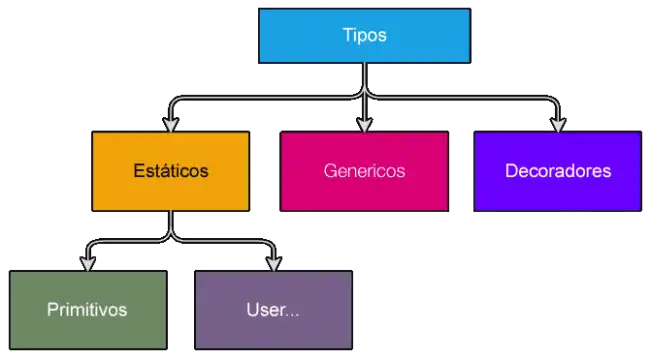Basic types in TypeScript are the fundamental elements that allow you to define and restrict the values a variable can take.

Basic Data Types
Numbers
The “number” data type in TypeScript allows us to represent numbers, whether integers or decimals. We can declare a variable of type “number” as follows:
let edad: number = 25;
Strings
The “string” data type in TypeScript allows us to represent text. We can declare a variable of type “string” as follows:
let nombre: string = "Luis";
Booleans
The boolean data type in TypeScript allows us to represent true or false values. We can declare a variable of type boolean as follows:
let esMayorDeEdad: boolean = true;
Array
The array data type in TypeScript allows us to store multiple values of the same type in a single variable. We can declare a variable of type array as follows:
let numeros: number[] = [1, 2, 3, 4, 5];
Special Data Types
Any
The any data type in TypeScript allows us to store any type of value. It is useful when we don’t know the data type a variable will have.
let variable: any = "Hola";
variable = 10;
Void
The void data type in TypeScript is used to represent the absence of a type. It is mainly used in functions that do not return any value.
function saludar(): void {
console.log("Hola");
}
Null and Undefined
The null and undefined data types in TypeScript represent the absence of a value. We can declare a variable of type null or undefined as follows:
let nulo: null = null;
let indefinido: undefined = undefined;
Never
The never data type in TypeScript is used to represent values that never occur. It is mainly used in functions that throw exceptions or enter infinite loops.
function lanzarError(): never {
throw new Error("Ocurrió un error");
}
